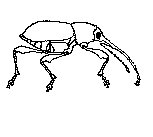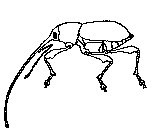
on Ovid’s Heroides
© M. Hendry 2008-2020

Homer himself says that Odysseus saw “the cities of many men” (Odyssey 1.3), and Penelope has no way to know that he has spent most of the last nine years on the islands of single women. Her worry (77-78) that he may be telling some new lover what a rube (rustica) she is suggests that she imagines him in some comparatively sophisticated port. Her habit of giving letters to passing strangers to deliver implies the same: she surely expects them to travel to places like Pylos or Corinth or Chalcis, not Aeaea or Thrinacia or Lotusland or even Ciconian Thrace. This would add one more to the long list of inaccuracies in her letter.
[This depends on the next. bobus more vivid.]
Contra Knox ad loc., Irus is not a slave but a free man too lazy to work. How then is his poverty shameful to anyone but himself? And how is he or his poverty part of the same shame as Melanthius’ generosity with his master’s beef? I take it that the fact that a lazy blowhard like Irus is not going hungry, and is eating Odysseus’ meat, is what is shameful. We might say that he’s one of the ‘deserving poor’. Cf. Proverbs 30:22, where the second of the three things that disquiet the earth and the four which it cannot bear is “a fool when he is filled with meat”.
Details.
Details.
Details.
Details.
The readings of P, F*, and E are unmetrical, either one long syllable too short (P), one too long (F*), or two too long (E). The readings of Gω and N. Heinsius are metrical, but look padded: neither nos nor si adds anything useful, and Heinsius' nisi si is very awkward, more so than English ‘unless if’ would be, since ‘unless’ is less obviously the negative of ‘if’ than nisi is of si. Instead of stretching out what is already in the line, it seems better to try to squeeze in a little more meaning, which my proposal does. There may be other ways to do so, but there will not be many, given the lack of available space. [Elision of ni in may be a drawback, but . . . .]